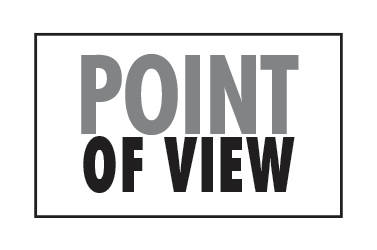Basic human decency long has seemed to me to be an indispensable element of our American character. Figure out what is the decent step in any situation, and you could depend upon most Americans to do exactly that. Recently, indecent comments made by certain Alaska legislators in a digital exchange crossed a line that clearly needs renewed emphasis.
Some historical events powerfully affected our instincts for decency, and one of the most important is the Holocaust. When Gen. Dwight Eisenhower saw the camps and ovens in Germany, he made certain they were filmed and recorded in print. He insisted that much of the physical labor of cleaning them up, moving corpses to graves, be done by Germans who lived near the camps. Ike brought large numbers of American GIs to the camps to be sure there were many first-hand, eye-witness accounts of the atrocities.
Eisenhower, a great leader of our war effort, also was a decent man. He was deeply affected by the Holocaust, as were most Americans, and he wanted the images to be seared into our memories. It was not the kind of event one expects even in the midst of a conflagration like World War II; the Holocaust was an expression of pure evil carried out by “average” Germans with the acquiescence of millions of other German citizens. Those horrendous actions resulted from decades of pumped-up prejudice and anti-Semitism that was intentionally fanned by the Nazi Party, and by Hitler himself. When the time came for genocide, Hitler had to say only a few words, and his willing executioners stepped in to generate a disgusting orgy of killing.
It probably seems a little surprising or odd to some people today, if they even are aware of it, that Dwight Eisenhower was so powerfully motivated to provide America with all the prompts he could so the memories of the Holocaust would last. In background, Ike absolutely was middle America. In person, he was a reasonably likable guy, albeit with plenty of human flaws. At his center, though, was that strong element of basic human decency. That and his skills brought him to the top of our military and eventually made him president.
Today, in a country and planet turned upside down in some respects, it is more important than ever to remember what the Holocaust was and to have a solid understanding that it was a time when one group of humans stood revealed to have sunk to a level of loathsome evil that we all must find intolerable. Perhaps we haven’t spent enough time teaching about these events, and that’s not hard to understand because the topic is abhorrent and gruesome. Nonetheless, it is profoundly inappropriate for anyone to make light of the Holocaust or discuss it in a manner that diminishes its importance and horror. That foul episode is not available for use as a lightly considered rhetorical device. Dwight Eisenhower’s efforts cannot be permitted to have been in vain, and we must maintain a rock solid wall of revulsion between us as the American people and any tendency to sink into or speak casually of vile behaviors.
Simple human decency is our legacy, though we sometimes have realized it imperfectly, and any crack that threatens that center of our character has to be filled quickly by caring, aware Americans. We can fuss and argue about any number of issues, but there is a sharp, bright line that should keep us within the bounds of decency.
Ron Keffer is a retired teacher and principal.


